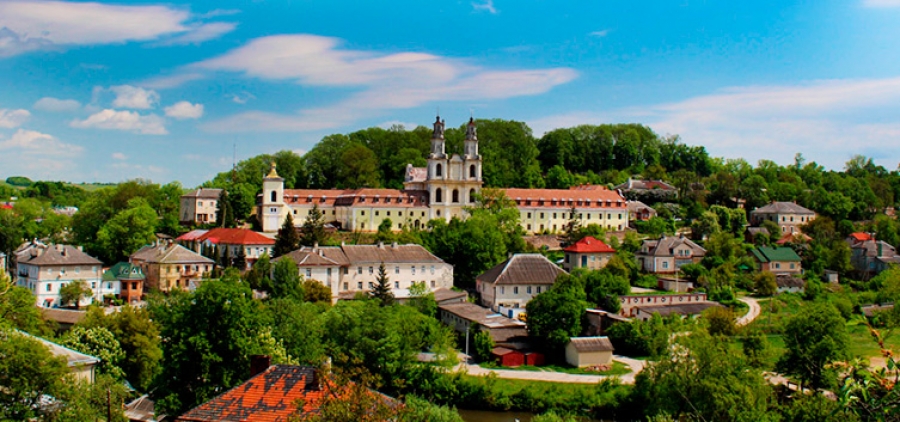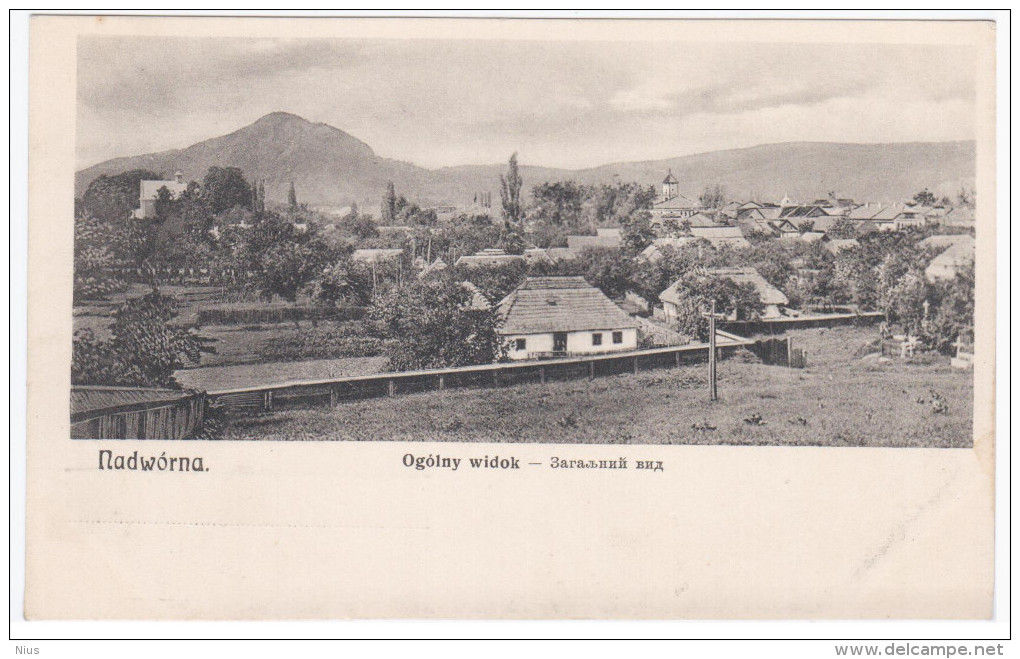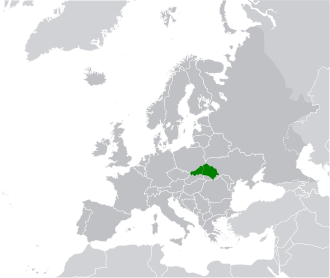My father was born in Buczacz (pronounced Buchach), Poland where soccer was the most popular sport. The town soccer teams were split along ethnic lines, and they often played against each other. The Poles were supposed to be the best, the Ukrainians 2nd, and the Jews the worst. In reality the opposite was true. Though the referees would cheat excessively for the Polish soccer team, the Jewish soccer team would invariably defeat them anyway. After beating the Poles, the Jewish fans and players fled the stadium because if the Poles cornered any Jew following their humiliation, they would beat them senseless or possibly even murder a trapped Jew.
Hitler broke his treaty with the Soviet Union in June of 1941, and Germany invaded Soviet-occupied Poland where Buczacz was located. As soon as the Germans took control of the town, the Gestapo issued an order for all Jewish male heads of households in Buczacz to report to the town soccer field. My Grandfather Isadore vacillated over whether he should go or not. His first wife, my Grandmother Regina, urged him not to go. Years later, she often recounted how she told him “don’t go, don’t go.” My grandfather didn’t want to start off on the wrong foot with the German authorities, but on the other hand he did not trust them. In the end he decided not to go. That night, they heard the sound of a machine gun coming from the direction of the soccer field. My father, then 11 years old, knew immediately what had happened–the Germans had murdered all the Jewish men gullible enough to follow German orders. His parents assured him that his fears were baseless, but a Jewish track athlete had managed to run away and escape, and he came to their house that night and confirmed my father’s fearful assumption.
Simply ordering Jews to report to their execution was a common tactic Germans used to liquidate a town or city of its Jews. The executions were called Actions. With most of the male leadership gone, Germans found it easier to intimidate the remaining population, moving them to ghettos or shipping them off to labor camps. Jews who managed to escape these mass shooting were often attacked by gangs of Poles or Ukrainians during their escape. The natives killed Jews for their money, jewels, or houses. They were quick to take advantage of a Jew’s misfortune.
10,000 Jews lived in Buczacz before World War II, making up about half the population. 7,000 were killed directly in town and most of the rest were shipped off to concentration camps. There were a total of 3 Actions or mass shootings; but Germans, Poles, and Ukrainians murdered many Jews in individual incidents. From a 2nd story window my father’s family witnessed a German officer shoot a teenaged girl in the head. Her blood flowed in the snow. The German ceremonially put gloves on before the shooting and removed them after. Germans began rounding up Jews to send to concentration camps, and my father’s family hid in the septic tank when the Germans knocked on the door and shouted, “Jew, come out.” My grandfather knew this was not a tenable situation–eventually the Germans would enter the house and conduct a thorough search and drag them out because their Polish neighbors would tell them Jews were inside. So he went to the countryside and found an Ukrainian farmer who agreed to hide his family in an hayloft in exchange for gold. My grandfather gave the man some gold and promised more after the war was over. My father and his brother hid in an hay wagon on the way to the farm and were later joined by their parents. Still later, my Uncle Haskell stayed with them after his wife and children were taken to a concentration camp while he was at work. The 5 of them stayed in the hayloft for 2 years, and they suffered from cold, hunger, and thirst. The farmer gave them each 1 piece of bread a day and the water from boiling potatoes, and on Christmas he gave them butter. During summer the farmer provided all the dandelions, cucumbers, and cherries they could eat. The relationship was not harmonious, however. Whenever the Germans won a major battle the farmer threatened to kick them out. The Russians liberated Buczacz in 1944, and my father’s family was able to leave the hayloft. My father’s family were among the 100 Jews in Buczacz who survived…~1% of the Jewish population.

Buchach, Ukraine where my dad was born and grew up. It was part of Poland when he lived here.

My Grandfather Isadore Gelbart with his 2nd wife, Ilsa. He lost his parents, 5 brothers and sisters, and many uncles, aunts, and cousins during the Holocaust; but he saved his 1st wife, sons, and brother-in-law. Photo circa 1976. Isadore owned a shoe store until WWII. He became a lawyer after the war at age 60. His father was a beekeeper who made mead and sold it to bars.
My Grandmother Regina grew up in nearby Nadworna before she married Isadore. 2,000 Jews lived in Nadvorna and they suffered the same fate as the Buczacz Jews. Shortly after occupying Nadvorna, the Germans were looking for a convenient location to mass execute as many Jews as they could. The Ukrainians pointed out a trench used to store ammunition during World War I. Unlike the first Action in Buczacz, most of the victims in this mass execution were women and children, killed while their husbands and fathers were at work. Over 1000 children were shot here. Pious Jews in Nadworna were especially persecuted. Rabbi’s beards were set on fire, and some had their eyes poked out while being taunted about how their God was not protecting them. Some Germans justified the executions with bizarre mental gymnastics. Shaje Shmerier, one of the very few Nadvorna survivors, relates how on a cold winter’s day he was using an iron bar to break the ice on top of a well when a German soldier came up to him and said, “we only killed the communist Jews. The good Jews are safe.” Schaje thought of telling him children are not communists and don’t even know what communism is but didn’t want to stand and argue with the German. He avoided them and had been using that particular well (which was off the busiest route) in the hopes of not running into any Germans.

Nadvorna, Ukraine. When my late grandmother grew up here, it was part of the Austro-Hungarian Empire, then after WWI it was Poland. It was a popular resort town during the early 20th century. Most of the 2,000 Jews who lived here were killed during the Holocaust.
A very brief history of Galicia since 1500 when the Jews arrived.

The province of Galicia is half in Poland and half in the Ukraine. It was all part of Poland when my father lived there.
Polish noblemen owned huge estates in Galicia during the feudal ages. They started inviting Jewish merchants onto their estates because they wanted to improve their local economies. Jews, persecuted elsewhere, were glad to live on these estates, and they started arriving in Galicia about 1500. Eventually, prosperous towns like Buczacz and Nadworna started popping up on these estates. Jews became part of the newly emerging middle class artisans and merchants who stabilized the economy. Cossacks, descendants of Ghengis Khan’s hordes, and Turks repeatedly attacked Galicia and occasionally laid ruin to some towns, murdering and terrorizing the Jewish population along the way. But the towns were always rebuilt. By the early 18th century the Austro-Hungarian Empire drove the Turks away, and it controlled the province until World War I. (My grandfather served as a cavalry officer in the Austro-Hungarian Army during the war.) Poland gained independence after World War I, and Galicia became part of Poland. After World War II the Soviet Union swallowed up the province. The Soviet Union collapsed in 1991, and the Ukraine declared its independence. Galicia is now split between Poland and the Ukraine.
Reference:
Nadworna
Numerous authors
Landmanshaft of Nadworna in Israel and America 1975
July 27, 2020 at 6:33 pm |
A rich and stunning historic trip through ..assorted human history. Thank you, your family groups..and those who..surround you..now…make certain..that the best human values..grow, flourish. Make certain..that we do not forget..to watch, to trace..the weakness and the ugly..and do not..let it escape your notice. Let not laziness..weaken..what our human family..is supposed to be..all about. Thank you for the family wisdoms..and power you have shared here. Blessings. ina
July 30, 2020 at 6:37 pm |
You should check out “Anatomy of a Genocide: The Life and Death of a Town Called Buczacz” by Omer Bartov.
July 30, 2020 at 7:49 pm |
Thanks for bringing that book to my attention. I just used the look inside feature on amazon.com and found my grandfather was 1 of Bartov’s sources. I’m definitely buying that book.
August 3, 2020 at 12:20 pm |
Wow that’s some scary stuff. My dad’s family came to South Africa from the Baltics (than under the Russian empire) before World War 1. I bless my cotton socks that they left before stuff really got nasty. The Holocaust was particularly brutal in that area.